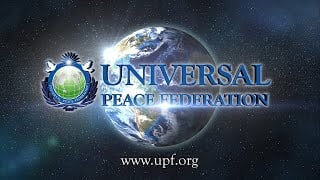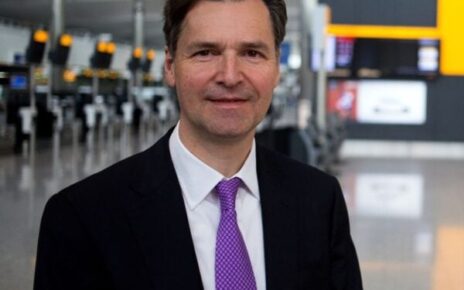Freedom of religion can never be taken for granted. It must always be defended and looked after. These were the words of Dan Burton, IAPP Co-Chairman and US Congressman (1983-2013).
The clashes between authoritarian regimes and free societies are endangering people’s religious freedom and human rights everywhere.
The 2nd Conference of Hope, held in South Korea on December 17, and live-streamed to millions of viewers globally, concluded with a call for people worldwide to sign a Declaration in Support of Fundamental Human Rights and Human Dignity:
Conference of Hope Organizing Chairman Dr. Yun Young-ho opened the event by asking the audience to remember that human rights “focus on the family, the God-centered family,” as well as the individual.
Overcoming Threats to Freedom of Thought, Conscience, and Religion. “We call upon all people throughout the world to affirm this declaration and to uphold the universal freedom of thought, conscience, and religion, and to stand firmly against all forms of intolerance, prejudice, slander, and hate toward others,” says the declaration.
“Religious freedom is “the human right to think and act upon what one deeply believes, according to the dictates of his or her moral conscience,” said Bishop Don Meares, Senior Pastor of the Evangel Cathedral in Upper Marlboro, Maryland, US.
“Freedom of religion is freedom of thought and is an essential foundation of democracy, alongside the freedoms of speech and assembly,” said Amb. Suzan Johnson Cook, Ambassador-at-Large for International Religious Freedom at the US State Department (2011-2013).
“No nation can exist without religion or human rights,” said Hon. Nevers Mumba, Vice President of Zambia (2003-2004).
Speakers recounted reports of persecution of religious groups—Muslim Uyghurs, Tibetan Buddhists, Jews, Christians, Muslims, Ahmadis, Bahais, Jehovah’s Witnesses, Yazidis, Rohingyas, Falun Gong, and, more recently, the Family Federation of World Peace and Unification, formerly the Unification Church, in Japan.
Regimes that veer toward totalitarianism see religion “as a dangerous competitor” and seek to silence or control it, said Doug Bandow, Senior Fellow at the Cato Institute, who specializes in foreign policy and civil liberty.
He cited a report from Open Doors (www.opendoorsusa.org), an organization that tracks religious persecution worldwide, highlighting the oppression carried out by the Chinese Communist Party (CCP), Afghanistan’s Taliban, the North Korean regime, the Myanmar military junta, and governments in Eritrea, Cuba, Uzbekistan, Tajikistan, and Laos.
The Chinese people’s protests against the CCP and its “zero-COVID” policies are the ”most widespread and fervent” the CCP has faced since 1989, said Hon. Mike Pompeo, US Secretary of State (2018-2021).
The world should support these protesters because even if the CCP relaxes its COVID policies, it “will continue to use its tools of oppression to crush religious freedom,” he said, citing the ongoing suffering of millions of Muslim Uyghurs in Xinjang and persecution of 100 million Chinese Christians, both Catholics, and Protestants.
China is also policing its people with cell phone tracking devices, facial-recognition technology, and electronic digital currency that the state can control, said Amb. Sam Brownback, US Ambassador-at-Large for International Religious Freedom (2018-2021).
“If they’re coming after every one of faith in China, and expanding these technologies to countries around the world, we’re going to soon be confronting this in a much larger sphere,” he said, urging nations to stand up to China, politically and ideologically.
China opposes—and fears—Korean unification because it believes a unified Korea would “align with the United States” and “slow down—or even block—China’s long-term 100-year strategy” to be the world’s global superpower, said Dr. Michael Pillsbury, Director of the Center on Chinese Strategy at the Hudson Institute. The CCP strictly controls both party members and churches on religious matters, even as it pursues a five-year plan to rewrite the Bible, change Jesus’ acts, and remake Christianity to match the CCP’s vision, said Dr. Pillsbury, author of “The Hundred-Year Marathon: China’s Secret Strategy to Replace America as the Global Superpower,” the best-selling book about China’s ambitious quest for hegemony.
In Japan, leaders in the Liberal Democratic Party (LDP) once welcomed the International Federation for Victory Over Communism (IFVOC), founded by Rev. Sun Myung Moon, as it helped counter “the threats [to Japan] from North Korea and China,” said Hon. Newt Gingrich, Speaker of the US House of Representatives (1995-1999).
Several speakers suggested that the CCP and its allies, such as the Japan Communist Party, are trying to exploit the tragic July 8 assassination of LDP leader former Prime Minister Shinzo Abe. Mr. Abe’s accused assassin is said to have held “a grudge” against the Family Federation over donations his mother made to the church in the early 2000s. The assassin’s alleged “grudge” has been used by the media and political officials to ignite public and legislative attacks on religious donations in general, and the Unification Church in particular.
Mr. Abe “was the mastermind of Japan’s new, robust security and foreign policy, pushing for changes to the pacifist constitution, creating a defense force that can also be offensive, and forging alliances, like the Quadrilateral [Security] Dialogue with India, Australia, and the United States,” said former BBC Correspondent Humphrey Hawksley, who has been tracking the Abe assassination and aftermath.
But that obvious geopolitical agenda has not been raised in Japan’s media, and instead, there has been “a campaign” against the Unification Church, Mr. Hawksley said. In fact, one analysis of 4,238 major Japanese media articles found that “not one gave a positive angle on the Unification Church,” he said.
According to Yoshio Watanabe, Vice President of IFVOC, the Japan Communist Party has a long history of clashing with IFVOC, and recently their chairman declared that this is the “final war” against the Family Federation and IFVOC. “I pledge that the International Federation for Victory Over Communism will put its life on the line to fight until the end to stop this scheme and to defend Japan’s democracy,” Mr. Watanabe said.
This hostility was openly expressed in 2007 when the Japanese Communist Party wrote that it wanted “the Unification Church to be dealt with as a criminal group,” said religious scholar Massimo Introvigne, Founder and Managing Director, of Center for Studies on New Religions (CESNUR) based in Italy. “Those who really love religious freedom should stand up and defend it where it is under threat. Today, it is Japan,” he said.



